Happy Tuesday! Our hearts go out to the C-SPAN caller who used his airtime during the inauguration coverage to voice his disappointment with Alabama’s absence from the College Football Playoff. He’s not alone in perhaps being preoccupied with it yesterday.
And on that note, congratulations to the Ohio State Buckeyes (and our colleague Rachael Larimore) on their national championship last night over Notre Dame!
Quick Hits: Today’s Top Stories
- Former President Joe Biden—ahead of President Donald Trump’s inauguration on Monday—preemptively pardoned five members of his family, Dr. Anthony Fauci, Gen. Mark Milley, the members and staff of the House committee that investigated the January 6 Capitol riot, and the police officers who testified before the committee. Biden said in a statement that he was protecting those pardoned from “baseless and politically motivated investigations,” but that the pardons should not be “misconstrued as an admission of guilt for any offense.”
- Trump issued an array of executive orders on Monday, many of which dealt with immigration. The moves included an order declaring a national emergency at the southern border, an order designating drug cartels as foreign terrorist organizations, and an order suspending the U.S. refugee resettlement program. He also signed an order trying to end birthright citizenship for the children of illegal immigrants, but the measure already drew a legal challenge, as will many of the others.
- Trump signed an executive order Monday to halt the ban on TikTok and give the company 75 days to come up with a buyer. But it’s unclear whether Trump’s actions can pause the legal consequences of the ban that took effect Sunday. The app is still live, but Apple and Google have continued to keep TikTok off their U.S. app stores.
- The president issued sweeping pardons and commutations for all of the nearly 1,600 people charged and or convicted for crimes committed during the January 6, 2021, attack on the U.S. Capitol. The clemency included the hundreds of individuals convicted of assaulting police officers—including figures such as Oath Keepers founder Stewart Rhodes and former Proud Boys leader Enrique Tarrio, who were serving some of the harshest sentences for their role in planning the attacks that day. Trump also directed the Justice Department to end all pending prosecutions of January 6 cases.
- The Senate confirmed the first of Trump’s Cabinet nominees when it unanimously approved Marco Rubio as Secretary of State. Pete Hegseth and John Ratcliffe—Trump’s picks for defense secretary and head of the Central Intelligence Agency, respectively—cleared the relevant Senate committees and will now move forward to a confirmation vote by the whole body likely later this week.
- Elon Musk’s Department of Government Efficiency (DOGE) is facing multiple lawsuits, including from the American Federation of Government Employees union, accusing the recently formed organization of not following government transparency rules. The filings state that because DOGE is not an official government department, it violates the 1972 Federal Advisory Committee Act by not making its records available to the public. President Trump will reportedly issue an executive order formalizing the organization as a government entity, possibly complicating the lawsuits.
- The Ohio State Buckeyes defeated the Notre Dame Fighting Irish Monday night 34-23 to claim the Buckeyes’ ninth football national title and their first since 2014. That was the first year of the College Football Playoff, a four-team tournament to determine the national champion. This year was the first to feature a new 12-team format.
An ‘American Carnage’ Redux
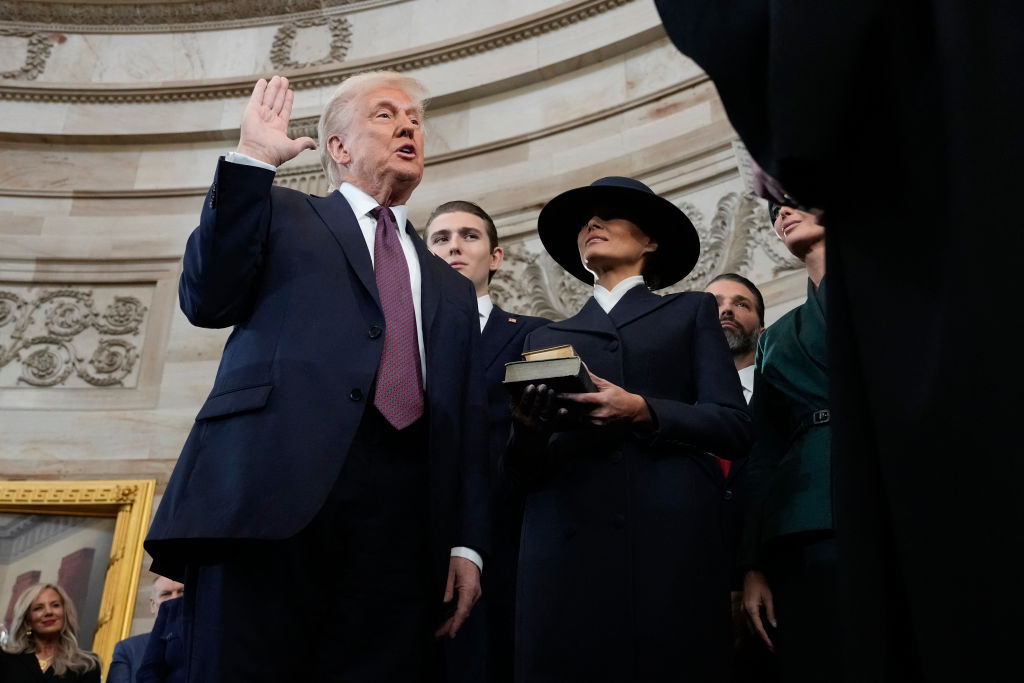
In his first inaugural address, President Donald Trump vowed to end the “American carnage” plaguing the nation. Eight years later—after two assassination attempts, multiple criminal indictments, one criminal conviction, and four years with Joe Biden in the White House—Trump struck the same, ominous tone in his first speech as the United States’ 47th president.
“For many years, a radical and corrupt establishment has extracted power and wealth from our citizens while the pillars of our society lay broken and seemingly in complete disrepair,” he said on Monday from the Capitol Rotunda, the site of his supporters’ attempts to subvert the peaceful transfer of power four years ago. “My recent election is a mandate to completely and totally reverse a horrible betrayal and all of these many betrayals that have taken place and to give the people back their faith, their wealth, their democracy, and, indeed, their freedom. From this moment on, America’s decline is over.”
In a ceremony bookended by celebrations across Washington, D.C., Trump took the oath of office before a patchwork crowd of family members, social media influencers, UFC fighters, and tech CEOs. During his subsequent speech—which at times felt more appropriate for a campaign rally than an inauguration—the new president oscillated between leveling unapologetic attacks at his political rivals and making ambitious vows to “annihilate” the domestic and international challenges facing the U.S., including through a wave of day-one executive orders.
“The golden age of America begins right now,” Trump said, declaring January 20, 2025, the country’s “Liberation Day” in the 30-minute address. “From this day onward our country will flourish and be respected again all over the world. We will be the envy of every nation, and we will not allow ourselves to be taken advantage of any longer.”
The remarks also seemed to take on a deeply personal resonance for Trump, who asserted that he had been “tested and challenged more than any president in our 250-year history.” Conflating his legal challenges and political opposition with the attempt on his life at a campaign rally in Butler, Pennsylvania, in July, the new president said he had been “saved by God” to “make America great again.”
But beneath the extreme rhetoric, Trump tapped into the very real concerns of the American electorate: natural disaster recovery, illegal immigration, crime rates, and cultural extremism emanating from the left.
At the top of what Trump described as his “common sense” agenda was immigration reform. The president laid out a series of executive actions to “defend our country from threats and invasions,” including declaring a state of emergency on the southern border, reinstating the Remain in Mexico policy from his first term, “immediately” halting illegal immigration, designating drug cartels as foreign terrorist organizations, and ending birthright citizenship. Trump also outlined plans to invoke the 1798 Alien Enemies Act to prevent foreign gangs and drug cartels from operating on U.S. soil. Passed under President John Adams, the law allows the government to detain or deport citizens of a hostile power during wartime.
The president went on to declare a second, “national energy emergency,” reviving his vow to “drill, baby, drill” in an effort to combat inflation and slash oil prices. The emergency declaration accompanied a series of executive orders loosening restrictions on fossil fuel production and reversing or de-funding a number of Biden’s environmental initiatives, including by undoing incentives for the electric vehicles sector and temporarily halting wind lease sales. Trump also signed an action to withdraw the U.S. from the Paris climate agreement, an international climate change accord aimed at limiting global warming.
On trade, the president reiterated his plans to impose tariffs on imports—though he stopped short of signing any day-one orders on any U.S. trading partners. “Instead of taxing our citizens to enrich other countries, we will tariff and tax foreign countries to enrich our citizens,” he said, announcing the creation of an “External Revenue Service,” to collect tariff revenue. From the Oval Office later on Monday, Trump said his administration was considering hitting Mexico and Canada with 25-percent tariffs as soon as February 1.
Outside his top priorities of immigration and trade, Trump outlined a host of other executive actions, from formally stating that the federal government’s official position is that there are only two genders to reinstating military servicemembers who were discharged for refusing to abide by coronavirus vaccine mandates.
Throughout the speech, Trump frequently veered into “manifest destiny” territory. He signed orders to change the name of the Gulf of Mexico to the “Gulf of America” and to revert Alaska’s Mount Denali—the highest peak in North America—back to “Mount McKinley,” reversing former President Barack Obama’s decision to rename the mountain in 2015. As for the Panama Canal, “We’re taking it back,” the president said ominously, though the remarks were light on specifics as to how that would be achieved.
Thus was Trump’s first day back in office: heavy on promises, light on pragmatism. The president followed his swearing-in ceremony by appearing before a cheering crowd of thousands in Washington’s Capital One Arena, where he appeared alongside Vice President J.D. Vance on a massive red stage to sign the first eight executive orders of his second presidential term. “Could you imagine Biden doing this? I don’t think so,” he said, grabbing hold of the mic. The orders included a requirement that federal workers return to full-time in-person work and a freeze on most federal hiring.
Some of the day-one actions were expected, although shocking in their scope: The president issued pardons and commutations for roughly 1,600 January 6 defendants, including hundreds convicted of assaulting law enforcement officers. Others were constitutionally dubious and are sure to be challenged in court, such as the revocation of birthright citizenship, a 14th Amendment right. And still more had been telegraphed for days, like the extension period granted to Tiktok, in abeyance of the ban passed by Congress and upheld by the Supreme Court, and the revocation of the security clearances of 50 former intelligence officials.
Capped off with a round of inaugural balls, the first day of the Trump administration was an unusually active one: Some 200 executive orders, memoranda, and proclamations were signed.
Any reminders of his predecessor were almost afterthoughts: After a reporter asked Trump if Biden had left him a letter in the Resolute Desk, per tradition during presidential transitions, Trump was surprised to find that a letter was, in fact, in its top drawer.
“Thank you Peter, it could have been years before we found this,” Trump said.
Worth Your Time
- Coffee prices are about to skyrocket, Javier Blas wrote for Bloomberg. As bad weather in Brazil and Vietnam—the world’s two largest coffee producers—spikes wholesale costs, retail prices are sure to follow suit. “If anything, the only question is why retail coffee prices aren’t much higher already. In nominal terms, wholesale green coffee beans are changing hands in the New York and London markets at the highest level ever, having surpassed the peak set in 1977,” he wrote. “Currently, the lag is lasting longer than usual for a variety of reasons, including supermarket chains pushing back against any higher prices due to the cost-of-living crisis. But the difference is growing so large that coffee merchants say elevated retail prices are a question of when, not if. More precisely, the question is whether the hikes will come in late January or early February.”
- Will the Middle East see better days ahead? In his Substack, Noahpinion, Noah Smith argued that the answer is yes, as the region grows increasingly war-weary and technological innovation flourishes. “Just a few years ago, there were few regions of the world that seemed as dysfunctional as the Middle East. Some Middle Eastern countries had oil wealth, but overall living standards were mediocre and pretty stagnant, and there was little domestic technology or competitive industry to speak of. Authoritarianism was everywhere, and strict religious values had produced persistent social inequalities. And most importantly, the whole region was mired in a seemingly intractable morass of wars,” he wrote. “And yet when I look at the Middle East today, I’m strangely hopeful. … Half a century from now, the desert may bloom, and the region may be a powerhouse of green energy, industry, and software, rather than the playground of oil sheikhs, warlords, and hyper-religious madmen. I know it’s a bold prediction, but stranger things have happened.”
Presented Without Comment
The Hill: Byron Donalds on Trump inauguration: ‘Daddy’s back’
Also Presented Without Comment
Wall Street Journal: American TikTokers Get a Taste of Chinese Censorship as They Rush to RedNote
In the Zeitgeist
With his hit Apple TV+ show Shrinking wrapping up its latest season and a Captain America movie on the way, 82-year-old Harrison Ford is certainly a busy man. But it looks like he’s not busy enough—we’re getting a second season of 1923, a Yellowstone spinoff. It’ll have to tide us over until he takes one last crack at making a good Indiana Jones movie in the 21st century. Sigh.
Toeing the Company Line
- Mike Warren hosted a special inauguration Dispatch Live (🔒) with Sarah Isgur, Steve Hayes, Jonah Goldberg, and David Drucker yesterday afternoon to unpack Trump’s second inaugural address. Members who missed the conversation can catch a rerun—either video or audio-only—by clicking here.
- In the newsletters: Kevin Williamson argued (🔒) that DOGE will fail to make a dent in spending if entitlements and defense are off the table and Nick Catoggio outlined (🔒) why he’s now even more pessimistic about the next four years.
- On the podcasts: Williamson was joined by Grover Norquist on The Dispatch Podcast to explain the second Trump administration’s tax policy. Plus: Sarah Isgur and David French return to Catholic University to discuss Constitutional law with Joel Alicea and Trevor McFadden in a live Advisory Opinions.
- On the site: Warren compares Trump’s second inaugural address to Grover Cleveland’s and Williamson makes the case that Biden’s preemptive pardons are a gift to Trump.
Let Us Know
Did you watch Donald Trump’s swearing-in ceremony? What did you make of his second inaugural address?




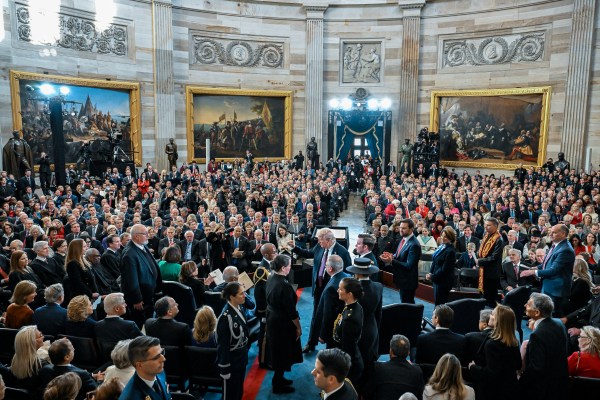
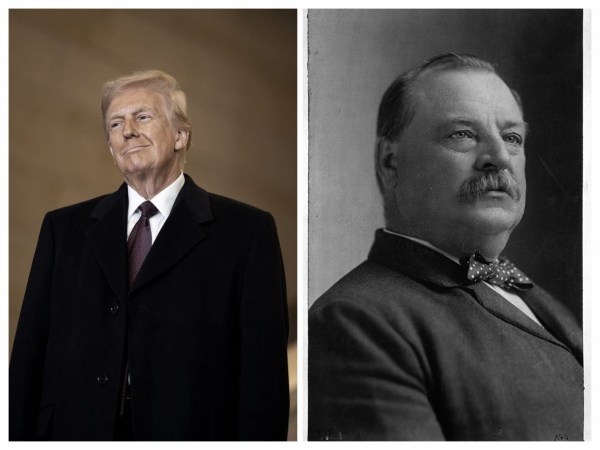
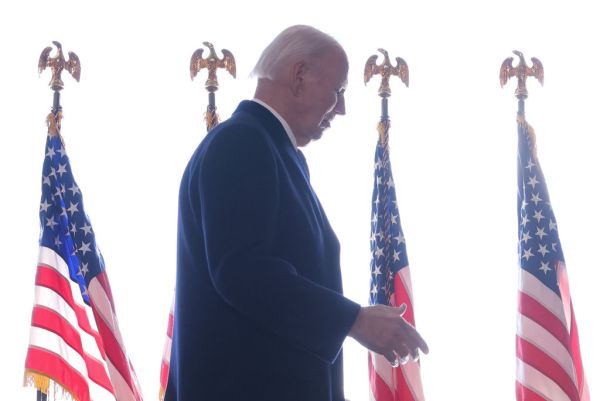

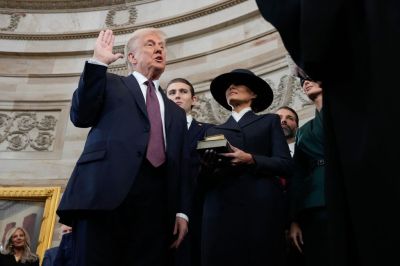
Please note that we at The Dispatch hold ourselves, our work, and our commenters to a higher standard than other places on the internet. We welcome comments that foster genuine debate or discussion—including comments critical of us or our work—but responses that include ad hominem attacks on fellow Dispatch members or are intended to stoke fear and anger may be moderated.
With your membership, you only have the ability to comment on The Morning Dispatch articles. Consider upgrading to join the conversation everywhere.